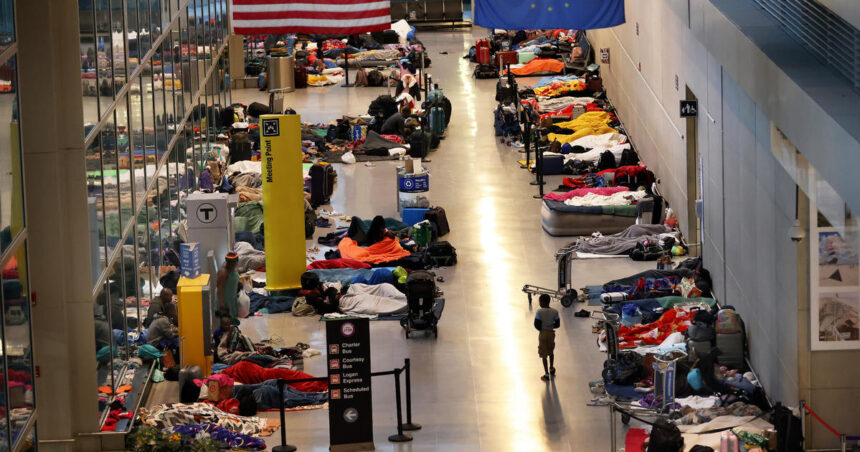BOSTON – Migrant families are no longer allowed to sleep overnight at Logan Airport in Boston, under a new policy from Massachusetts Governor Maura Healey.
Logan Airport migrants
Some families were seen sleeping in Terminal E, the international terminal at the airport, early Tuesday morning, shortly after the ban went into effect. Hours later, after sunrise, Massachusetts State Police, social workers and Massport staff led the migrants to taxis which then brought them to nearby welcome centers in Allston and Quincy.
Migrants and their families have been sleeping at the airport for months as Massachusetts ran out of emergency shelter space, despite the state’s right-to-shelter law. State Troopers have been paid overtime to help them, sources told WBZ-TV’s I-Team back in January.
David L. Ryan/The Boston Globe via Getty Images
“We’ve never thought that Logan was an appropriate place for people to be staying overnight,” Healey told reporters last month after the new policy was announced. “We’ve given, I think, enough lead time to work with case managers and service providers in finding new locations for people.”
Migrants moved to old prison shelter
All migrants will now be moved to the old Bay State Correctional Center in Norfolk. The former prison is a controversial new shelter just opened by the state. Migrants will then have nine months to find jobs and transition into permanent housing in Massachusetts or somewhere else.
The emergency shelter system in Massachusetts has been at or near capacity since last November.
As of Tuesday, 7,347 families were enrolled in the program, according to the state’s emergency assistance website. The capacity is 7,500.
Healey sent a team to the southern border in Texas last month to warn federal, state and local authorities there that Massachusetts shelters are full.
“I feel sad for them”
Keturah Douze has been volunteering with migrant families at Logan Airport. She would pick them up, bring them to a local church so families could shower and get a meal.
Douze said she has mixed feelings about the changes.
“I feel sad for them, but at the same time it’s a good thing to remove them out of the public eye. Being in the airport is not safe,” Douze said. “A lot of them are looking for work, a lot of them want to thrive. A lot of them want to move forward. So once they get into the shelter, I just know that they’re going to go further.”













